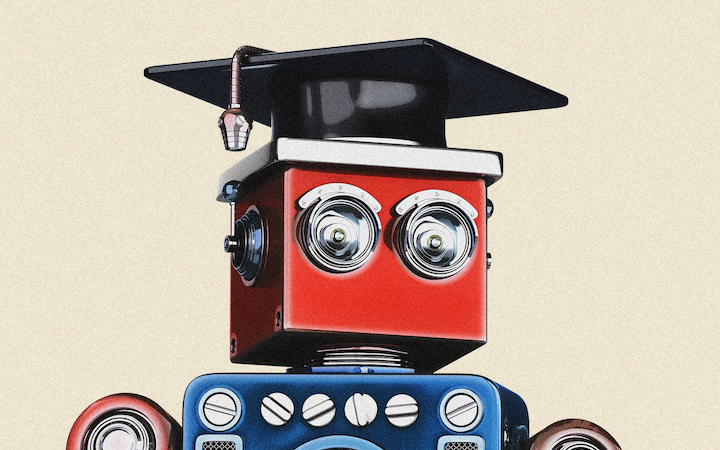Amid growing concerns that artificial intelligence will transform jobs, some people are turning to education, even getting degrees in AI. Educational institutions and companies across the United States are debuting AI courses, degrees and certifications, aiming to help people become AI “literate,” or able to effectively use AI. While some worry AI could replace them at work, others hope education will help them get ahead.
UT's Master of Science in AI Highlighted in The Washington Post
"These workers don’t fear artificial intelligence. They’re getting degrees in it."

These workers don’t fear artificial intelligence. They’re getting degrees in it.
Students young and old are flocking to AI majors, as colleges expand courses on the topic.
SAN FRANCISCO — Vicky Fowler, who uses ChatGPT for tasks including writing and brainstorming, asked the chatbot out of curiosity to do something more challenging: program a working calculator. To her surprise, it took just seconds.
Discovering how fast the artificial intelligence tool could execute a complicated task, Fowler, who has spent two decades working on data protection at a large bank, felt a new urgency to learn more about AI. So she enrolled in the online master’s program in AI at the University of Texas at Austin and expects to graduate next year.
"This is the future,” Fowler, a Charlotte resident, said, recalling her reaction to the ChatGPT-built calculator. “Either there will be an AI agent around us, supporting us at work, or it will be a recipe for learning things.”
“I don’t think anyone should be staying put,” said Johnathan Long, who’s in his early 30s and just completed a master’s degree in applied artificial intelligence at the University of San Diego. “We … should always be improving, and with that comes understanding AI.”
Employers expect technological skills such as AI and big data to have the largest increase in importance in the next five years, followed by network and cybersecurity and technological literacy, according to the Future of Jobs Report published by the World Economic Forum earlier this year.
“A combination of technology literacy and human-centric skills is a sweet spot in terms of future labor market demands,” Till Leopold, head of work, wages and job creation at WEF, told The Washington Post.
PricewaterhouseCoopers found that wages of workers with AI skills were 56 percent higher than those without, according to its 2025 Global AI Jobs Barometer. AI often automated tasks, allowing people to focus on more complex work, the report states.
AI “is changing jobs,” said Dan Priest, PwC’s chief AI officer. “The value proposition of [the human] is evolving, so skills have to evolve.”
Universities say the job market is transforming because of AI, and in some cases their professors are leading the research. So they’re taking quick action to respond to students’ interests and employers’ demands.
The master’s program in AI at the University of Michigan at Dearborn, located in the heart of greater Detroit’s automotive industry, was built in 2020, two years before ChatGPT debuted, as a response to AI advancements especially in the automotive industry, said Di Ma, an associate dean at the school’s college of engineering and computer science.
But since the explosion of generative AI, the program has grown to 172 students from 21 in 2021.
“There will be a lot of demand for companies to integrate AI with their current systems,” Ma said. “So software engineers need to know how.”
When The University of Texas at Austin launched its online master’s program in AI in 2024, it underestimated how popular it would be, it said. The idea began in 2020, but the rise of ChatGPT gave the program “jet fuel,” said Brent Winkelman, chief of staff at the school’s computer science department. In its second year, 1,500 students are enrolled. At launch, it had more than double the enrollment of its second most popular online master’s program.
“We were all reading [applications] on the weekends and at night trying to keep up with the volume,” Winkelman said.
The degree aims to help students understand algorithms and techniques used to build AI models and how to apply AI tools, said Adam Klivans, faculty director of the UT program.
Read the full article.
Learn more about UT Austin's MSAI.